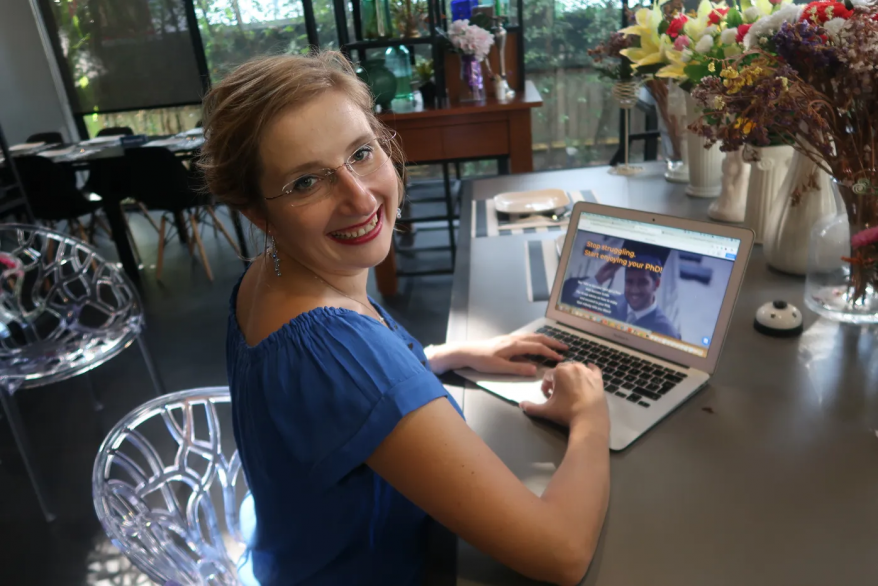‘Peer-to-peer support’ can be defined as the support given by a person who belongs to the same group or shares the same experience (Mead, 2003). In contrast to mentorship, where help is provided by an expert, in peer-to-peer support all peers are equally qualified to help each other. Importantly, peer-to-peer support is built on common trust among individuals, enabling them to express issues that are difficult to express in classical mentorship. Support consists of sharing knowledge or experience, providing emotional and social support, or giving practical advice (Solomon, 2004). Peer-to-peer support is a powerful therapeutic method in psychology, frequently used while dealing with stress, depression, and burnout, as well as in preventing these problems (e.g., Ali et al., 2015; Peterson et al., 2008; Pfeiffer et al., 2011).
Recently, numerous studies raised the issue of poor mental health among early career researcher (ECR)s. According to Levecque et al. (2017), 33% of PhD candidates in a Belgian study were at risk of having or developing a psychiatric disorder, such as depression or anxiety. The most frequent reasons for the latter are lack of social support, isolation, constant stress related to PhD work, and uncertainty about the future (for review, see Schmidt & Hansson, 2018). Importantly, Evans et al. (2018) reported that PhD candidates were six times more likely to experience depression and anxiety than other highly educated individuals working outside of academia. Overall, these results suggest that the high demands of academia can endanger ECRs’ mental health.
In this light, peer-to-peer support may be a powerful tool to prevent mental health issues and empower PhD candidates in their academic challenges. Several researchers experienced benefits of peer-to-peer support while writing a PhD dissertation (e.g. Jolley et al., 2015) or sharing mental health concerns (e.g. Masefield, 2019). Indeed, being a part of the community gives PhD candidates greater social connectedness and feelings of belonging, thus helping them overcome isolation and loneliness (Stracke & Kumar, 2014). Furthermore, the community constitutes a safe space where peers can share their struggles, emotions, and search for advice, thus playing a role in social and emotional support. Finally, belonging to the community can also contribute to the development of professional skills, such as communicating constructively, working in a team, and growing professional and personal networks (Jones et al., 2012).
It is important to mention though that peer-to-peer support does not replace expert advice and doesn't question the importance of good mentorship in academia. It brings, however, an interesting opportunity to combine a mentor's expertise with the motivational aspects of community support, which could be very beneficial for PhD candidates in both academic and non-academic environments.
Overall, fostering peer-to-peer support is a promising way to prevent and combat mental suffering, and improve general well being in academia.
Dr. Ewa Pluciennicka holds a PhD in Psychology from the University of Lille, France, and is the CEO and Founder of “PhD Success”, an online platform for community support and advice between Early Career Researchers.
References
Ali, K., Farrer, L., Gulliver, A., & Griffiths, K. M. (2015). Online peer-to-peer support for young people with mental health problems: a systematic review. JMIR mental health, 2(2), 19.
Evans, T. M., Bira, L., Gastelum, J. B., Weiss, L. T., & Vanderford, N. L. (2018). Evidence for a mental health crisis in graduate education. Nature biotechnology, 36(3), 282.
Jolley, D., Griffiths, A. W., Friel, N., Ali, J. B., & Rix, K. (2015). The importance of peer support during the final stages of a PhD. A Guide for Psychology Postgraduates: Surviving Postgraduate Study, 36.
Jones, N., Torezani, S., & Luca, J. (2012). A peer-to-peer support model for developing graduate students’ career and employability skills. Intercultural Education, 23(1), 51-62.
Levecque, K., Anseel, F., De Beuckelaer, A., Van der Heyden, J., & Gisle, L. (2017). Work organization and mental health problems in PhD students. Research Policy, 46(4), 868-879.
Masefield, S. (2019). Use peer support to improve well-being and research outcomes. Nature, 572(7769), 407-409.
Mead, S. (2003). Defining peer support .Intentional Peer Support: an alternative approach. West Chesterfield, NH: Intentional Peer Support.
Peterson, U., Bergström, G., Samuelsson, M., Åsberg, M., & Nygren, Å. (2008). Reflecting peer‐support groups in the prevention of stress and burnout: Randomized controlled trial. Journal of advanced nursing, 63(5), 506-516.
Pfeiffer, P. N., Heisler, M., Piette, J. D., Rogers, M. A., & Valenstein, M. (2011). Efficacy of peer support interventions for depression: a meta-analysis. General hospital psychiatry, 33(1), 29-36.
Schmidt, M., & Hansson, E. (2018). Doctoral students’ well-being: a literature review. International journal of qualitative studies on health and well-being, 13(1), 1508171.
Solomon, P. (2004). Peer support/peer provided services underlying processes, benefits, and critical ingredients. Psychiatric rehabilitation journal, 27(4), 392.
Stracke, E., & Kumar, V. (2014). Realising graduate attributes in the research degree: the role of peer support groups. Teaching in Higher Education, 19(6), 616-629.


